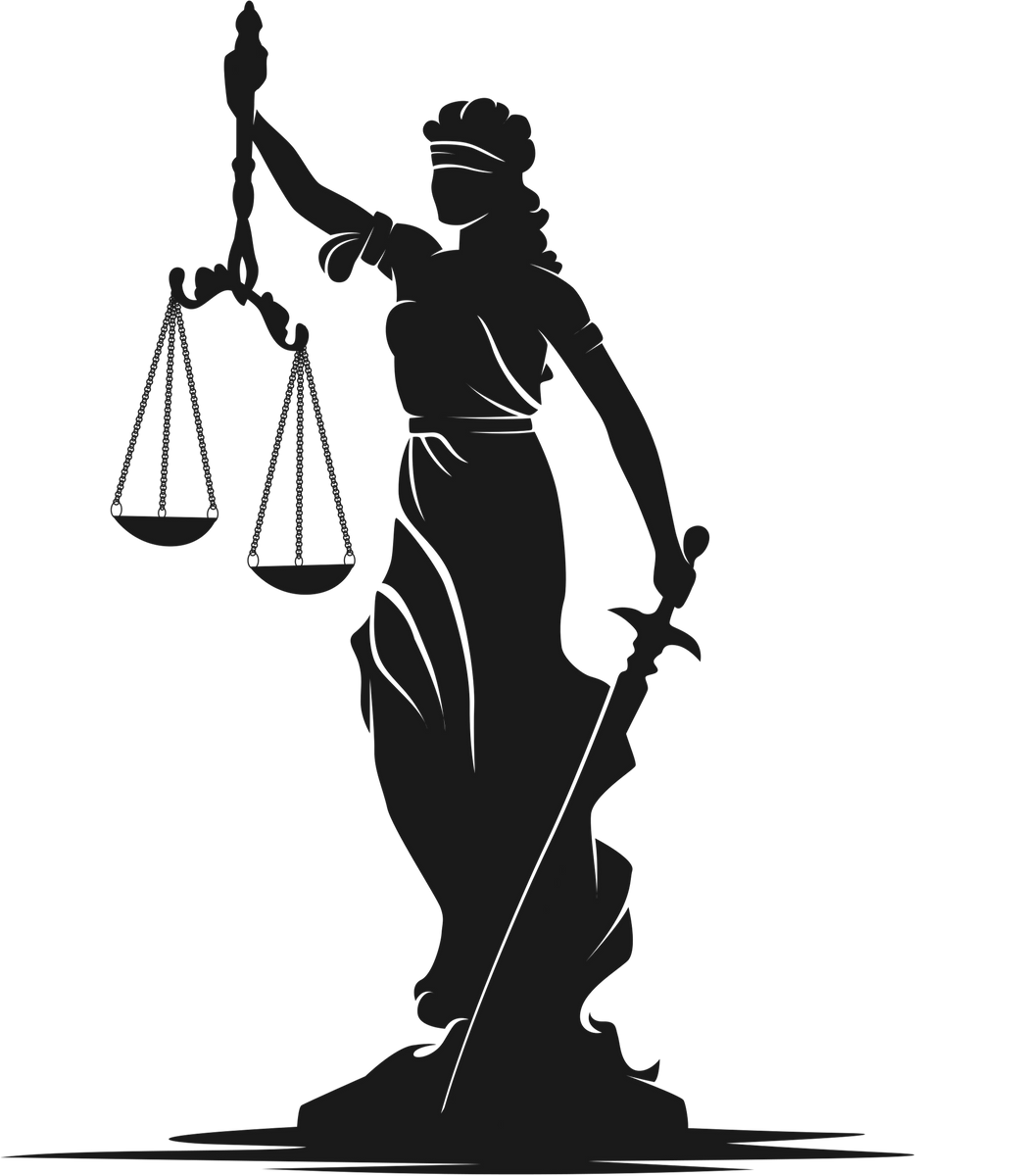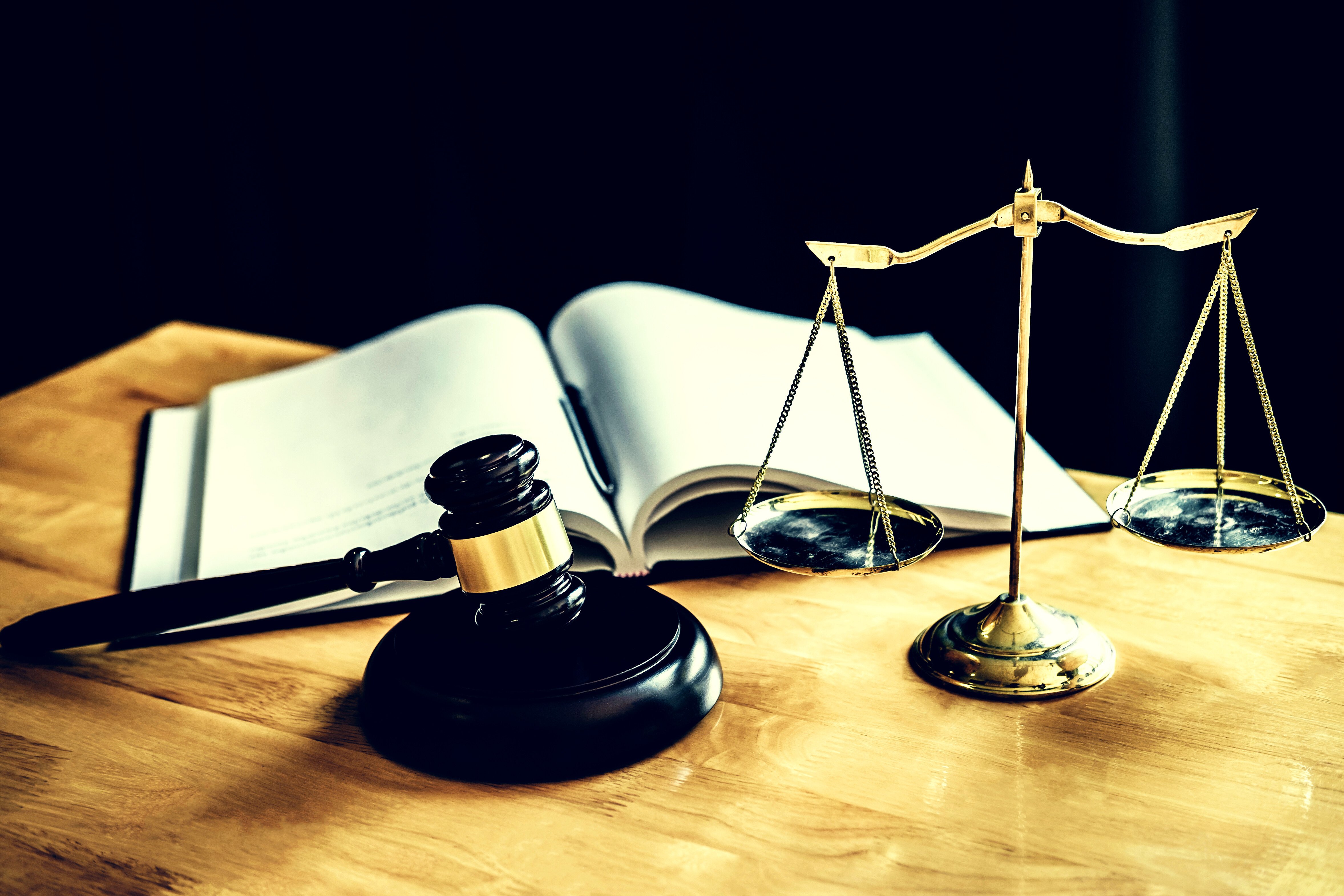

Haydar Ketabchi, Esq.
We are a New York debt-collection defense law firm that is always available to answer your questions, review summonses and complaints, and help you with your debt matter.

Facing a lawsuit, garnishment or frozen account?
If you have been sued
for a consumer debt,
we provide comprehensive lawsuit defense
with affordable
payment arrangements.
Lawsuits
If you are facing a garnishment, our firm provides a complete response to both the garnishment and the Default Judgment.
Garnishments
Bank Restraints
If you’ve been locked out of your account, our firm will provide immediate intervention as well as address the Default Judgment.
Get the legal knowledge and advice your matter deserves.
We understand creditor litigation.
Whether you're up against a New York debt collection lawsuits or Default Judgment, we provide strategic counsel and aggressive representation to help you achieve the best possible outcome. Trust us to fight for you in the courtroom and secure your future.
We offer you a personalized approach
We work closely with you to explore all available options and follow a customized plan of action to address your New York lawsuit, garnishment or bank levy effectively and with your unique circumstances and goals in mind.
We use our expertise to your advantage
The Consumer Credit Fairness Act of 2022 provides New York Defendants and Judgment Debtors with greater protections and remedies previously unavailable to debtors facing consumer credit litigation. We carefully examine each case with these important reforms in mind.



Haydar Ketabchi, Esq.
Managing Attorney

Practice Areas
We are a full service litigation firm that takes on Plaintiffs and Judgment Creditors.

- Lawsuit Defense
- Default Judgment litigation
- Bank Restraints
- Exemption Claim Procedure
- Holdover Proceedings
- Lien Removal
- Certificates of Disposition
- Temporary Restraining Orders
- Emergency Applications and OSCs
- Motion Practice
- Debt Settlement
- Protective Orders and Stays

The Consumer Credit Fairness Act
The vast majority of debtor-Defendants are unrepresented. In 2018, New York City Civil Court data show that over 96% of defendants were unrepresented in civil court consumer credit actions. Due to the pandemic, the number of consumer credit action filings is only expected to increase. In particular, the debt-buyer industry has played a prominent role in the entry of thousands of default judgments across New York City. There are ongoing problems with identity theft, mistaken identity, stale debts, and inaccurate and inflated balances.
Changes Benefit Debtors.
As a result, New York State passed the Consumer Credit Fairness Act (CCFA), which went into effect in April and May 2022. The CCFA ushered a number of key changes to debt collection lawsuits, including:
- a shorter three-year statute of limitations for creditors to commence a lawsuit to recover a consumer debt (calculated from the date of the last voluntary payment).
- the reduction of statutory post-judgment interest from 9% to 2%,
- greater transparency in pleading requirements,
- the requirement that creditors attach a copy of the contract or charge-off statement to the summons and complaint and in the case of debt-buyer complaints, the date the debt was sold or assigned to the Plaintiff, along with an accurate chain of custody.
- a Defendant no longer waives “jurisdictional” defenses such as improper service if raised in an Answer but not timely asserted in a motion to dismiss within 60 days.
Defendants in Creditor Lawsuits Still Face Challenges.
Today, debtors across New York State face unique challenges in the legal collection process. They are required to go to court to file their Answers, a process that varies by courthouse. For instance, while Kings County civil court will mail a pro se Answer to the plaintiff’s counsel, Queens County Civil does not. In addition, a self-represented litigant must enlist a person who is 18 years of age or older and who is not party in the lawsuit to mail the Answer and complete and notarize an affidavit of service prior to filing the Answer with the clerk’s office. Those who have encountered a garnishment or bank levy are forced to go the clerk’s office to requisition their court file. Since older cases (default judgements entered prior to 2018) are archived upstate - those files may takes weeks or even months to arrive. This leaves the Judgment Debtor in a lurch, and unable to competently fight the judgment.
Retaining a competent debt defense attorney who has integrated these recent protections into their practice is key to a successful outcome. These changes present many new opportunities to dismiss an action or negotiate a reduction. HK Law is fully conversant in the CCFA and will review your case with these changes in mind.

We know a lawsuit can be intimidating.
We defend consumers against a variety of creditor lawsuits. If you have been sued by an Original Creditor such as Discover, or Capital One Bank, or a debt buyer such as LVNV Funding or Velocity Investments, LLC, we are here to help! Refer to our Litigation Chart to learn why it is better to intervene at the lawsuit stage rather than take a chance with a default judgment hanging over your head. We charge a flat fee and offer payment arrangements, so your legal costs are manageable and predictable.
Our Lawsuit defense services:
We zealously represent you and fight for a just and favorable outcome. Our standard pre-judgment retainer includes reviewing the complaint, exploring your defenses, drafting, serving, and filing an Answer with Discovery Demands, court appearances, and settlement negotiations. NY Civil Court appearances include preliminary, pre-trial, and discovery status conferences, as well as motion hearings. When the evidence overwhelmingly points to dismissal, we will file a motion to dismiss in lieu of an Answer. We are prepared and ready to fight for you.
It’s not too late!
If you seek attorney intervention after the statutory deadline to file an Answer has expired, we may file a motion to compel the filing of a late Answer if the Plaintiff refuses to stipulate to such terms. Likewise, if you have filed an Answer but failed to assert all your defenses, we may move the Court to file an Amended Answer with discovery so the Creditor knows you mean business. When you entrust us with your matter, you are appointing a fierce advocate who will fight for you. We bring a wealth of experience and personal commitment to your case. Call us today at 347-331-8840 to discuss your situation. We offer a complimentary, brief consultation so we can get to know each other and evaluate your case and potential defenses. We are committed to doing everything in our power to keep your costs low and obtain a positive outcome, providing you with the best value for your investment in peace of mind and financial freedom.

We set aside Default Judgments.
If you received a NY Notice of Judgment or Notice of Entry, these documents (which must be served on a Defendant) signal that a judgment is being or has been entered against you. The Plaintiff, who has now assumed the legal position of a Judgment Creditor, is no longer collecting a “debt” but enforcing a monetary judgment, which is valid for up to 20 years or more. Dealing with garnishments and bank restraints can be overwhelming. New York Courts generally favor litigating matters on the merits rather than entry of judgments by default. HK Law can provide the time-sensitive intervention and policy-centered advocacy needed to carefully review your case history and provide immediate peace of mind.
Lack of Notice
Lack of proper notice to New York debtors is a serious problem. You might not receive notice from the Judgment Creditor when a Default Judgment is being enforced. Or, you may have received a Notice of Garnishment, Information Subpoena, Restraining Notice, or a combination of these notices. In the former scenario, you discover a judgment when you are locked out of your bank account or your employer notifies you of a wage garnishment. When you hire us, we will requisition your file and transcript of the Judgment if the creditor will not provide a copy. We will commence the legal processes of attempting to “stay” judgment enforcement and challenge the Default Judgment itself. This process involves specific steps both in and out of Court, which we will handle on your behalf.
Vacatur vs. Dismissal
Vacating a default judgment does not automatically result in a dismissal unless a Court Order or stipulation of the parties specifies the underlying action is dismissed. When a Default Judgment is vacated, the underlying lawsuit may still be pending and the case usually proceeds with the filing of an Answer by the debtor as Ordered by a Judge or agreed upon by stipulation. An experienced debt defense attorney can help you negotiate an outcome that potentially resolves both the judgment and the underlying lawsuit, effectively ending the case. Likewise, executing a “conditional release” of funds from your bank account or arranging payments to a City Marshal or County Sheriff does not always result in a satisfaction of Judgment. Also, a judgment creditor can pursue you in other states by “domesticating” a New York money Judgment in your destination state, where the Judgment Creditor may resume enforcement subject to the laws of that state, which may be more creditor-friendly. These are just a few subtle considerations that are often neglected by debtors who represent themselves in negotiations with Creditors.
Our Post-Judgment Litigation Services
We offer judgment defense services at a fixed flat fee so you know your legal costs upfront. Our representation includes an emergency motion to vacate the Default Judgment, also referred to as an Order to Show Cause. We will handle every aspect of the preparation, e-Filing, and proper service of the Signed Order and will fax a full copy to the Marshal or Judgment Creditor’s law firm to halt the garnishment or temporarily lift the bank restraint. These litigation procedures involve compliance with specific deadlines and filings.
Civil Supreme Court Litigation
If your judgment is housed in the New York Civil Supreme Court, the procedure to stay judgment enforcement is a little different. Unlike judicial intervention in civil court where a Judge may Order a stay on motion papers alone; allowing you stop a garnishment before the hearing - in Supreme Court, you must request a Temporary Restraining Order and inform the Judgment Creditor’s attorney of the date, time and Court part you will appear to argue for a TRO. Therefore post-judgment litigation by OSC in Supreme Court requires an immediate Court appearance to obtain an interim stay pending a full hearing. Otherwise you may proceed by notice of motion.

New York Collection Law Firms
Forster & Garbus
Tenaglia & Hunt
Kirschenbaum & Phillips, P.C.
Roach & Murtha
Selip & Stylianou
Mullooly, Jeffrey, Rooney & Flynn
Rausch Sturm
Kavulich & Associates
Zwicker & Associates
Houslanger & Associates
Portnoy Schneck, L.L.C
Steven Cohen
Tromberg, Morris & Poulin, PLLC
Mandarich Law

Contact Us Today

Haydar has worked in the debt relief industry for over a decade. As a former IAPDA Certified Debt Specialist, he first served as a Debt Specialist at National Debt Relief, then a Senior Debt Counselor at a financial services firm on Madison Avenue.
Later he served as a paralegal at a Wall Street consumer defense practice for five years, honing his skills and learning the mechanics of debtor litigation and post-judgment relief. Today, he represents consumers in creditor actions and judgment matters and is well-versed in the rules of procedure in the civil courts.
Haydar is an attorney who cares - about his clients and his community. His passion for the study of civil practice and financial health seamlessly aligns with his client’s goals. Haydar received his undergraduate degree from New College of California.
He graduated from CUNY School of Law in 2011, where he was a Revson Fellow. He is licensed to practice in all New York State Courts and is a member of the New York State, Queens County and Nassau County Bar Associations.
You too can be
debt free!

Debt Defense Litigation Chart
Topic | Lawsuit | Default Judgment |
Role of Debtor | Defendant | Judgment Debtor |
Role of Creditor | Plaintiff | Judgment Creditor |
Burden of Proof | Is on the creditor | Shifts to the Judgment Debtor |
Debtor Involvement | More passive role | Highly pro-active role |
Initial Debtor Court Filing | Answer | Order to Show Cause or Notice of Motion |
Evidence | Presented with the Complaint or obtained through Discovery | Judgment Debtor must go to Courthouse to requisition court file |
Defenses | “Affirmative” Defenses may be waived if not timely pleaded in your Answer | “Meritorious” Defenses must be factually specific and persuasive |
Court’s Approach | More flexible standard of review of Affirmative Defenses | Sworn Affidavit itemizing Meritorious Defenses with detail |
Judge’s Role | Oversees case progression to trial and decides a variety of motions | Primarily rules on your motion to vacate and ensures due process |
Duration | Months or potentially years until settlement, summary judgment or trial | Days or weeks until motion to vacate is heard |
Collection Activity | Cannot garnish your wages or freeze your bank account | Can enforce a judgment against you by garnishment, levy, or lien |
Legal Consequences | Default judgment, potential waiver of defenses, eventual judgment enforcement | Income execution, bank levy, or lien on property, domestication in destination state |
Relief sought | Dismissal of lawsuit and/or asserting Counterclaims for damages | Stay of garnishment or release of account; setting aside (vacating) the Default Judgment; dismissal of the underlying lawsuit |
Settlement Incentive | Plaintiff more likely to settle | Judgment Creditor less likely to settle |
Stress Level | Less stressful | More stressful |
Legal Costs | Generally lower | Generally higher |
The above chart is for informational purposes only.

DISCLAIMER
Attorney advertising. Results are not guaranteed. Use of this website by any person(s) or entity(ies), including, but not limited to, viewing, reading, messaging, and posting, is not intended to, and shall not be deemed to, create an attorney-client relationship. Unless an attorney-client relationship has been established, the confidentiality of any communication cannot be guaranteed. Any information, data, metadata, or otherwise, which may be contained or found on this website is intended strictly for general information purposes only and is not legal advice. Communication by any person(s) or entity(ies) through this website by any means, including, but not limited to, telephone, e-mail, facsimile, "contact-us" form, or by way of any other form of electronic communication, does not in itself create an attorney-client relationship. Any links found on this website are provided as a convenience and for informational purposes only; they do not constitute an endorsement or approval of any of the products, services, or opinions of the corporation, organization, or individual; use of any links is at the user’s sole risk and discretion.
The free initial case evaluation is not an offer for legal services or services of any kind and may be canceled, terminated, or revoked at any time and for any reason or for no reason whatsoever. In-office consultations are by appointment only and may be subject to a fee. Please call or contact us for further details.
Copyright © 2024. All Rights Reserved.

Site Map

Copyright © 2024. All Rights Reserved.
